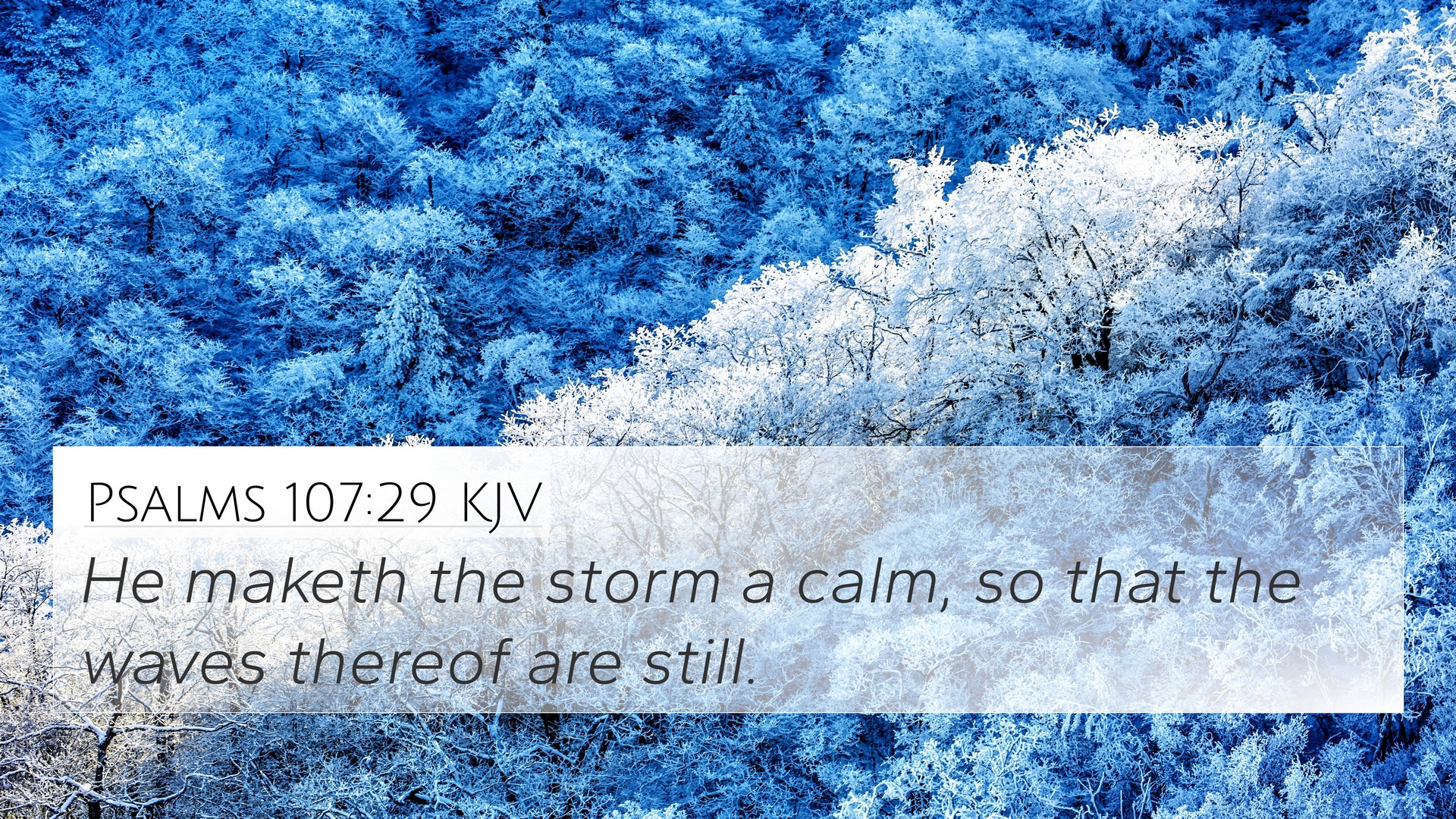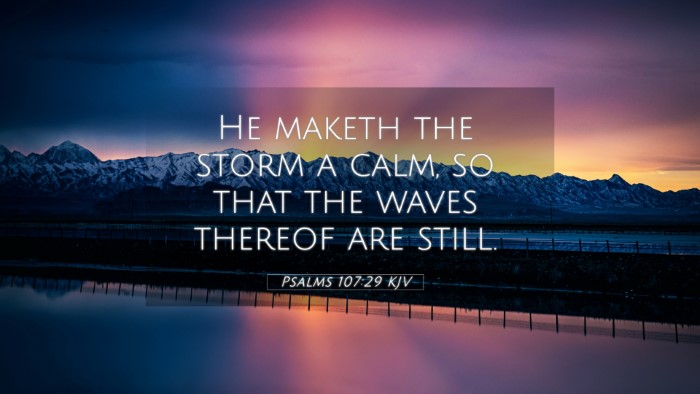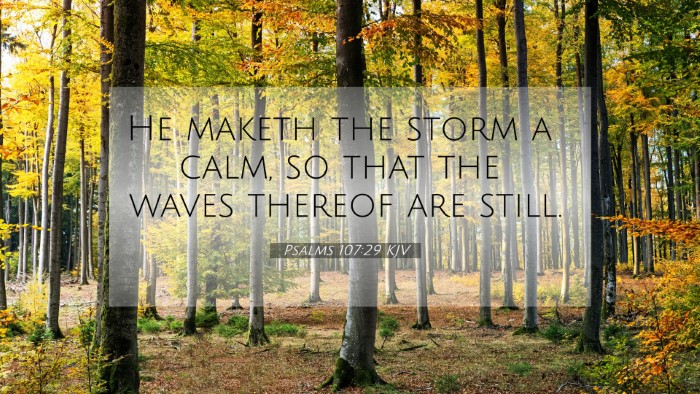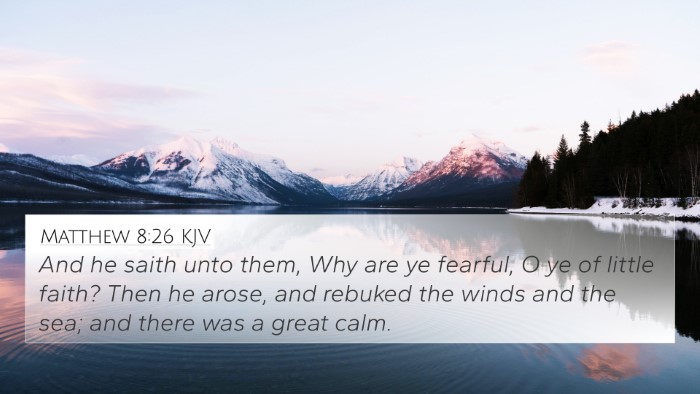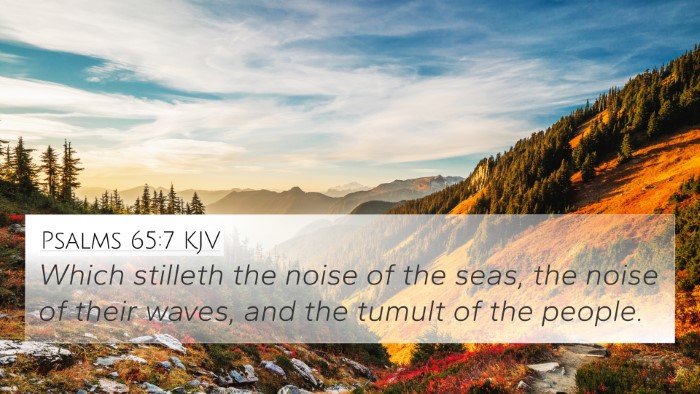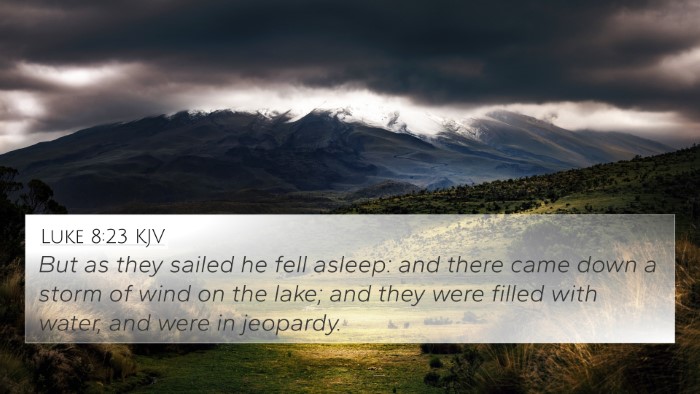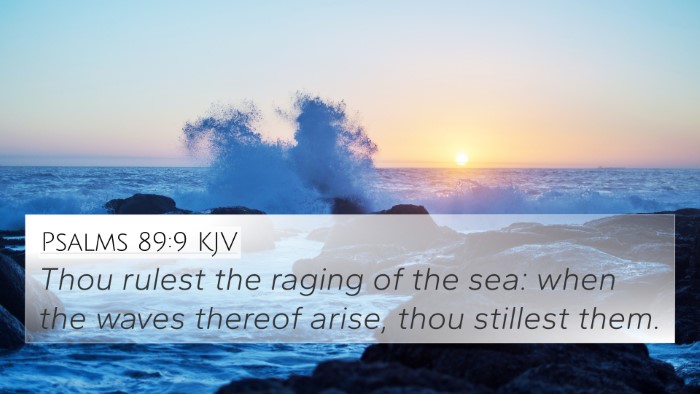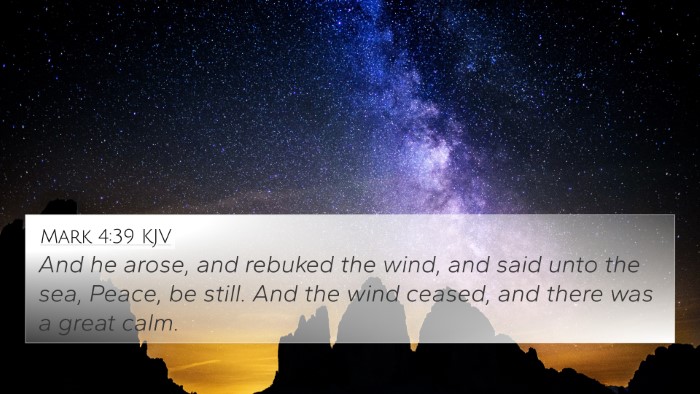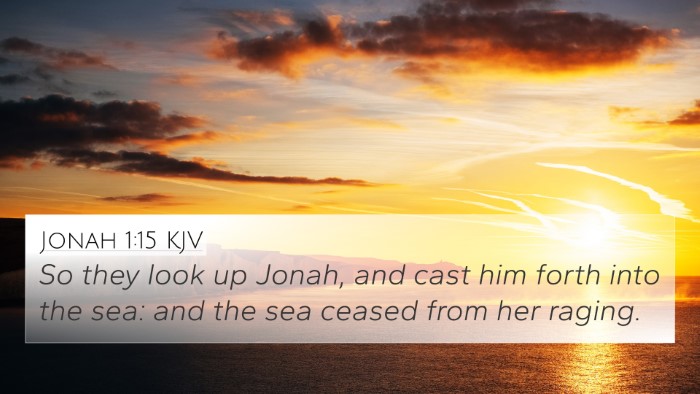Understanding Psalms 107:29
Psalms 107:29 states, "He maketh the storm a calm, so that the waves thereof are still." This verse holds profound meanings, symbolizing God's sovereignty and control over chaos and distress.
Verse Meaning and Interpretation
This verse is part of a larger passage that celebrates God's mercy and faithfulness. The psalmist reflects on the various struggles faced by individuals and groups and highlights God's intervention during their times of trouble. The imagery of a storm being calmed captivates the reader's attention, portraying God as a divine anchor in tumultuous times.
Insights from Commentaries
-
Matthew Henry:
Henry emphasizes that this verse illustrates God's power to provide peace amid turmoil. He notes that just as God has control over nature, He similarly has control over the spiritual storms that afflict the soul, encouraging believers to trust in His ability to calm their fears.
-
Albert Barnes:
Barnes focuses on the metaphor of the storm and waves, reinforcing the idea that God can bring stillness to overwhelming circumstances. He also mentions that divine intervention often leads to thanksgiving and worship, as the recipients of His mercy recognize His benevolence.
-
Adam Clarke:
Clarke delves into the historical context of the verse, suggesting that it reflects the experiences of the Israelites facing opposition and hardship. He highlights God's role as a protector and savior, providing solace and safety even when dangers loom large.
Cross-References of Psalms 107:29
Several Bible verses connect thematically and contextually with Psalms 107:29:
- Mark 4:39: "And he arose, and rebuked the wind, and said unto the sea, Peace, be still." This New Testament parallel emphasizes Jesus' authority over nature.
- Isaiah 43:2: "When thou passest through the waters, I will be with thee; and through the rivers, they shall not overflow thee." This verse reassures believers of God's presence in times of trial.
- Matthew 8:26: "And he saith unto them, Why are ye fearful, O ye of little faith? Then he arose, and rebuked the winds and the sea; and there was a great calm." Here, fear and faith are contrasted through a similar calming of the storm.
- Psalm 89:9: "Thou rulest the raging of the sea: when the waves thereof arise, thou stillest them." This reinforces God's dominion over chaotic elements.
- Psalm 46:1-3: "God is our refuge and strength, a very present help in trouble." The notion of God being a reliable source of strength is mirrored that mirrors the reassurance found in Psalm 107:29.
- Jonah 1:15: "So they took up Jonah, and cast him forth into the sea: and the sea ceased from her raging." This illustrates the calming of the sea through divine action and submission.
- Luke 8:24: "And they came to him, and awoke him, saying, Master, Master, we perish. Then he arose, and rebuked the wind and the raging of the water: and they ceased, and there was a calm." This demonstrates Jesus’ direct power to calm storms, akin to the power described in Psalms 107:29.
Thematic Connections
This verse thoroughly engages with themes of divine protection, faith in difficult times, and God's control over nature. When considering the aforementioned cross-references, one can observe the rich tapestry of scriptures that point to God's reliability and the comfort He provides throughout the ages.
Tools for Bible Cross-Referencing
For those seeking to delve deeper into Bible verse connections, various tools for Bible cross-referencing can be utilized:
- Bible Concordance: A reference guide that lists words found in the Bible and their locations, aiding in thematic studies.
- Bible Cross-Reference Guide: A systematic way to track related verses across different books and chapters.
- Cross-Reference Bible Study: Methods of connecting scripture to uncover deeper meanings and broaden understanding.
- Bible Reference Resources: Books and online tools that provide insights into biblical texts’ relationships.
- Bible Chain References: A technique of linking passages that provide supporting insights relating to a common theme.
Conclusion
Psalms 107:29 magnificently encapsulates God's power to restore peace amidst turmoil. By engaging with public domain commentaries and related scriptures, one can deeply appreciate its significance and how it resonates with other biblical teachings. Utilizing cross-references not only enriches one’s understanding of this verse but also highlights the overarching narrative of hope and divine steadfastness found throughout Scripture.
Further Study Suggestions
Readers are encouraged to explore these topics to enhance their understanding of God's role in calming life's storms:
- Comparative Bible Verse Analysis: Evaluate the context and messages of similar verses.
- Identifying Connections Between Old and New Testament: Study how themes resonate across the Testaments.
- Cross-Referencing Psalms with New Testament Teachings: Investigate parallels between the Psalms and Gospel accounts.
By leveraging tools and understanding connections between scripture, believers are better equipped to find solace and encouragement in their walk of faith.
